
Blog post
Prioritizing Mental Health as a Universal Human Right
By: Neltada Charlemagne, DNP, APRN, PMHNP-BC, PHN, BHC
Our guide to the pursuit of art that inspires you
This article first appeared on Next Avenue.
A package of colorful markers in a kitchen drawer, left behind from someone’s school project.
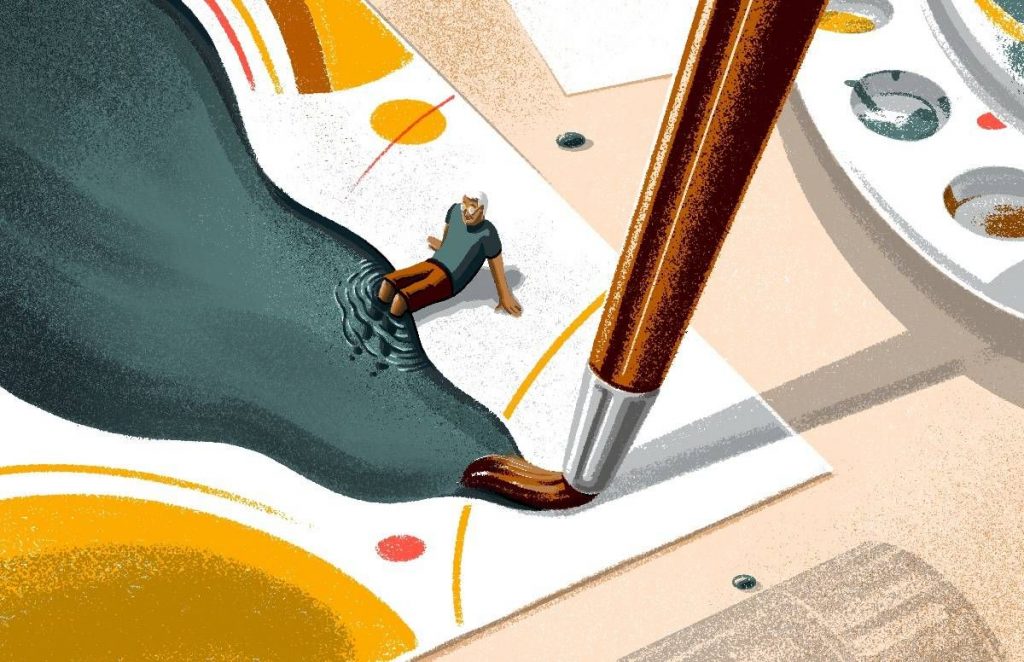
A stack of photos that would make a perfect collage, too meaningful to just tuck into an album.
The piano that is now only just a surface for picture frames and hasn’t made music for quite some time.
A surprise gift in the mail from a friend — a colorful embossed journal — with a note, featuring a Georgia O’Keeffe painting, that says “You seem like someone who could write a good story.”
A virtual tour of the Louvre, its wonders unfolding on your computer screen.
Every day, the potential for creating and appreciating art is all around us.
Since early 2020, we’ve all been challenged to see the beauty in daily life because daily life has changed considerably. It’s been a year of uncertainty, loss, isolation, sadness and fear.
But in the resilient spirit of creativity, new opportunities have come to light: beautiful Zoom musical performances by artists like Yo-Yo Ma, virtual art classes at places such as The Museum of Modern Art in San Francisco (SFMOMA), the eclectic variety of theatrical experiences from Lincoln Center in New York City and many more.
At Next Avenue, we believe in the power of art to bring joy, healing, creativity, purpose, friendship and a sense of accomplishment to life. Art can raise our spirits.
Perhaps finding the way toward art looks different at the present time; to find creativity, we all have to be creative as we search for classes and programs that will be right for us now.
“I know the world is bruised and bleeding, and though it is important not to ignore its pain, it is also critical to refuse to succumb to its malevolence. Like failure, chaos contains information that can lead to knowledge – even wisdom. Like art.” – Toni Morrison, writer
Inspiration is out there. We want to help you discover it.
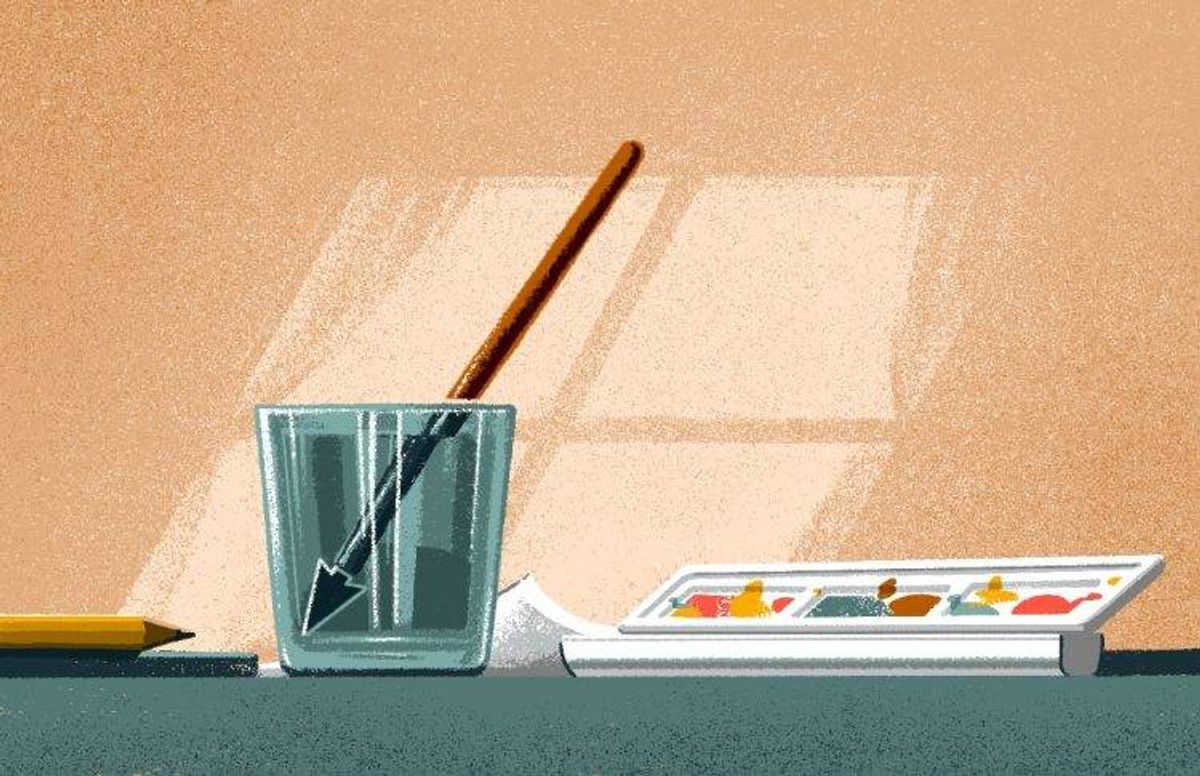
A spacious painting studio, a comfortable room in a community center or library, a music salon or dance studio — these are the places where classes in the arts are traditionally held.
However, thanks to the creative use of a variety of social platforms (Zoom and others) by teachers who still want to connect with and inspire students, classes, lectures and more can be experienced virtually. Writing, painting, drawing, yoga, collage-making, singing — what do you want to try?
One of the unexpected benefits? Location no longer matters.
A novice watercolor student in Iowa can take an online class from an experienced teaching artist in Florida. Or with a collection of natural items from a Chicago backyard, paired with the smart and warm instruction offered in a step-by-step virtual class by a teacher in Los Angeles, an artist is born.
There are many online resources available: some are subscription-based, ideal if you finish one course and want to take another.
Programs like The Virtual Instructor offer a free trial of their painting and drawing classes, as does Skillshare and Udemy, which offer courses beyond art.
Flora Bowley, an artist based in Portland, Ore., has a curated collection of art instruction videos, ($18 per session) which she created in the first few weeks of the pandemic.
Or check out The Art Assignment, by PBS Digital Studios, a wealth of creative videos spotlighting many fascinating art topics such as “Art You Can’t Get To” and “Eat Like Andy Warhol,” along with opportunities to take on your own projects.
The Craft Contemporary museum in Los Angeles is offering virtual craft tutorials where participants can assemble items on their own (leaves, sticks, fabric and more) and follow step-by-step instructions from museum staff on how to turn these basic ingredients into art.
Local libraries and community centers are also offering virtual programs. The Queens Public Library in Queens, N.Y., has many options for adults, including a recent Art History Series led by an art historian. Speaking of libraries, most are offering curbside service, so you can keep reading …which might inspire you to start writing.
As the world eventually returns to the “new normal,” people will once again gather for music, art, dance, theater and other art experiences. But maybe some who began to participate in online classes during the pandemic will continue to seek them out.
“Life starts to look different when you get past fifty. It’s the perfect time to discover your hidden talents.” – Angela Burton, founder, Feet to the Fire Writers’ Workshops
Some teachers will likely continue to offer online options to save the overhead costs of maintaining an art studio or to be responsive to older adults who would prefer not to gather in large groups for health reasons.
If you’ve found an online art class you like, follow the artist on Facebook or check out their website to see if the classes will continue in that format.
Classes Indoors and Out
While there are local art centers currently offering in-person classes, COVID-19 restrictions are firmly in place. For example, at the Textile Center in Minneapolis, a nationally-known fiber art center, no more than 10 students will be allowed in classrooms which have all been set up for social distancing (students will sit alone at six-foot-long tables). Masks and gloves are required, and other protocols have been established.
If you are interested in taking an in-person class, check with the art program or teacher to find out about their COVID-19 precautions.
Another option is to take your budding talent outdoors and paint en plein air, in the spirit of Impressionist masters such as Claude Monet.
The benefits of painting en plein air are many, according to teaching artist Susan Nicholas Gephart, 62, from Bellefonte, Pa., who has been painting for 40 years.
Gephart enjoys it as a singular pursuit and also finds pleasure in working with students who participate in her en plein air workshops. (In the wake of the pandemic, Gephart is now offering classes and workshops online.)
“I’m visually inspired by everything that is around me.” – Susan Nicholas Gephart, teaching artist
“When I am by myself, it’s all about serenity, connecting with the place I’m in and with the outdoors, and absorbing all of that into my spirit,” she says. “I’m visually inspired by everything that is around me.”
Take an easel and a canvas to a local park, or even just out to your own backyard, and create.
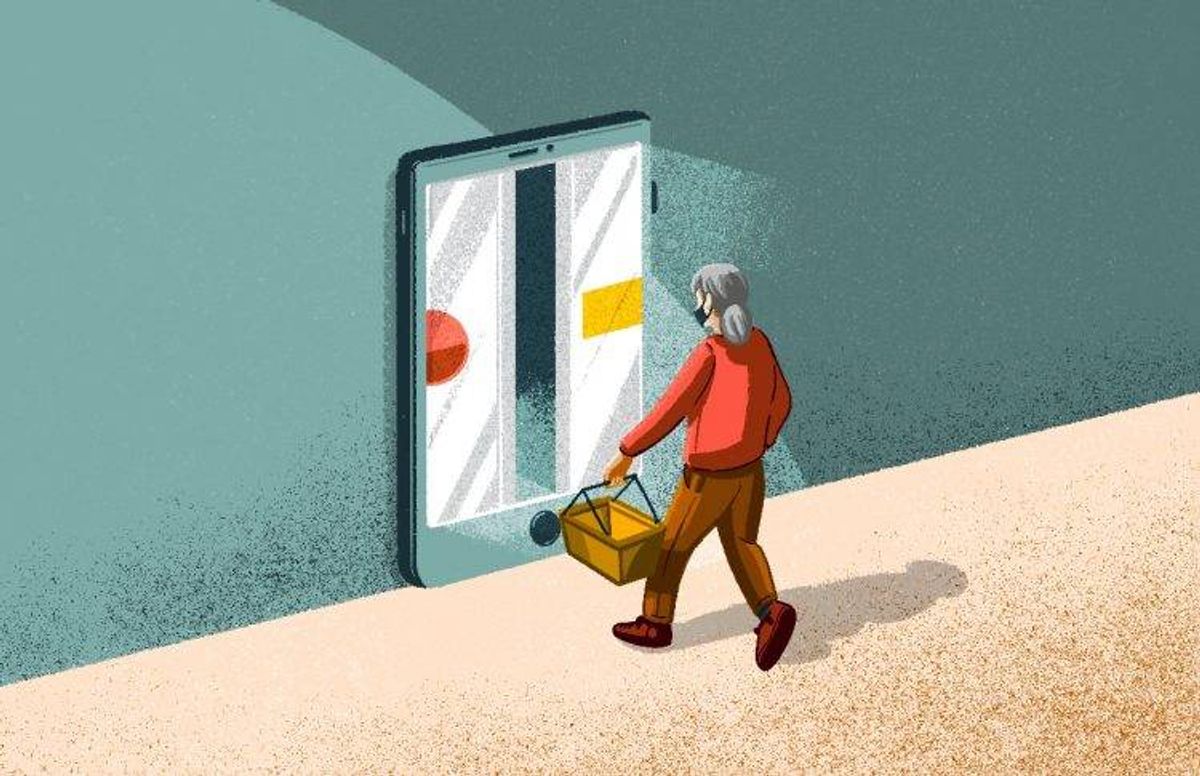
You’ve signed up for an art class. Now what?
If you’re someone who relished the thought of purchasing brand-new school supplies at the beginning of a school year, you might be inclined to order everything in sight.
But according to Gephart, it’s best to start with the basics. “I don’t want people to spend hundreds of dollars on tools they won’t need,” she says.
Each class and teacher will offer their own list, but here’s an idea of where to begin.
Supplies for a Drawing Class
Journal/sketchbook
Drawing pencils (four to six minimum, #2 or HB, which relates to the level of graphite)
Erasers: rubber, kneaded and gum
Pencil sharpener
Container for supplies
Supplies for a Writing Class
Notebook or journal
Pens or pencils
Highlighter
Post-it notes
Where Do I Buy Art Supplies?
Here are 5 national art supply stores:
Blick — nationwide locations and online
Michaels — nationwide locations and online
Utrecht — online
Jerry’s Artarama — online
North Light Shop — online
Many communities have independent shops with knowledgeable staff members, specializing in all types of artistic endeavors. Here’s just one example: String Thing Studio, a Black-owned business in Brooklyn, N.Y., features classes, gorgeous yarn and kits, which can also be ordered online.
Google “art supply stores near me” and you should find some suggestions. Ask if the company or shop offers shipping or curbside pick-up options.
The still and silent spaces of art galleries around the world became even more so with the onset of the pandemic, as many shuttered. While some, like the Minneapolis Institute of Art (Mia), are cautiously reopening (while also offering virtual experiences), others remain closed.
However, in the spirit of resiliency, many museums, galleries and art centers have been offering everything from Zoom Q&As with artists (The Hannan Center in Detroit sponsored an Emerge! Art Festival) to lectures, online tours and more.
At the Pennsylvania Academy of the Fine Arts (PAFA) in Philadelphia, which is offering online programming and is scheduled to reopen in September 2020, they have always had a large percentage of students who are 50 and older.
“When people come to the point where they are no longer building their careers, they have the time and energy to explore the other parts of who they want to be,” says Monica Zimmerman, vice president of public education and engagement at PAFA. “Based on the interests they’ve had during their lifetimes, they could have been seventeen other people, and many want to find out just who else they can be.”
“Art doesn’t matter if it doesn’t have an audience.” – Monica Zimmerman, Pennsylvania Academy of the Fine Arts
Steeped in art history, Zimmerman says PAFA’s art appreciation classes offer the chance to examine “little cultural snapshots of moments in time” as participants learn about the roles of women artists in history, for example, or how contemporary art is frequently “a window into where we want to go.”
“Curators don’t know more than you do. The only thing that matters is what you see when you look at a work of art,” Zimmerman explains. “Art doesn’t matter if it doesn’t have an audience.”
Even if that audience is a virtual one.
While some museums have opened their doors again, check their websites for details of their virtual programs. And be sure to check the sites of your local museums and see what they have to offer, either in person or online.
Here are just a few from around the country:
Montclair Art Museum (Montclair, N.J.)
Portland Art Museum (Portland, Ore.)
Museum of Fine Arts (St. Petersburg, Fla.)
Another option? How about an experience more aural than visual? In 2016, Tamar Avishai launched her biweekly podcast, “The Lonely Palette,” which has recorded several episodes at the Museum of Fine Arts in Boston. With each installment, the listener can become immersed in the experience of standing directly in front of a work of art.
Of the more than 45 podcasts Avishai has created, Episode 24: Meditations on Mark Rothko, is one of her personal favorites, focused on the American abstract expressionist (1903-1970). Read this Next Avenue story about “The Lonely Palette” to learn more.
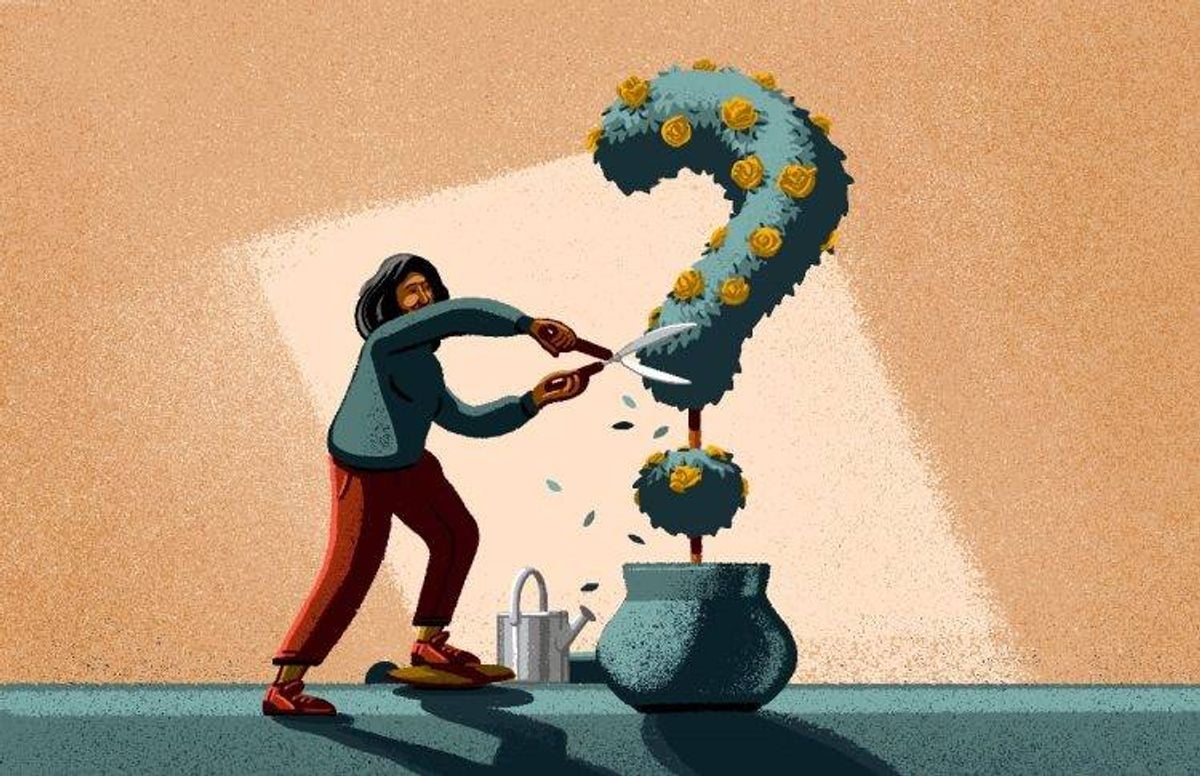
A curiosity and an openness. For teaching artist and painter Morgan Samuel Price, of Altamonte Springs, Fla., these are essential ingredients for those who want to begin an art class of any kind.
Even if you’ve taken art before, Price believes, you need to set a new starting point. And she says a good teacher will help you move forward.
“As a teacher, I can present the information, and then the student can learn the concept, but the application of the concept is where the work lies,” Price says.
Price, who has been teaching for more than 20 years and just opened what she’s calling her “online art studio” for virtual learning, says there is a bit of a need to be “a cheerleader” when you are a teaching artist.
Frustration can be a reality when you’re learning something new, Price says, adding that she took up singing when she was 50, which she found challenging.
In Price’s view, the point of taking an art class is to indulge in the “emotional rest” the experience can offer, and should be a peaceful endeavor, especially for those most in need of that.
“I recommend painting for anyone grieving a loss,” Price says. “You can disappear into the color.”
For all new students, if you keep practicing and lean on the passion that brought you to the art in the first place, “you will get there … and you’ll know it,” says Price.
T Mychael Rambo believes that by tapping into our creative power, we can offer others a glimpse into our authentic selves.
“We don’t live in a culture based on self-expression in an outward fashion,” says Rambo, a Black Emmy Award-winning theater professor, arts educator, vocalist and community organizer in Minneapolis. “People want to show what’s inside of them.”
“Expect some classes to go better than others. Give yourself permission to keep learning.” – Morgan Samuel Price, teaching artist
What Rambo, a company member of the Penumbra Theater, sees in his students age 50+ is a desire to “re-engage and re-energize.” By developing the skill set he offers in his creative dramatics classes throughout the Twin Cities (currently on pause due to the pandemic), the students have the opportunity to use their imaginations and their bodies in new ways.
And a new freedom: “When we open up to creativity, we can ask ourselves ‘What does it mean to be a tree?’ or ‘What does it mean to really sing a song?'” Rambo says.
Rambo calls the word “theater'”an action verb, as in, “To theater is to do, to be present to, to be alert to our surroundings and to be more aware as we age.”
Debra Rapoport, 74, is an eco-friendly style icon who lives in New York City. Fashion is her favorite expression of creativity. Her focus is on layered textiles related to the body, and some of her work is in the collections of the Metropolitan Museum of Art, the Philadelphia Museum of Art and the Houston Museum of Fine Arts.
In Rapoport’s words, “Where there is creativity, there are no rules — and where there are no rules, there is no fear!”
So, start here: Rapoport says getting dressed is an act of play. Open your closet door, and look for what’s speaking to you in that moment. Who am I today? What color feels right? In the mood for a print? Do you want something warm? Something silky? Something light and cool?
“I equate creativity with joy. More creativity, more joy!” –Debra Rapoport, Instagram influencer
“Putting together your outfit for the day is like creating a painting. You can do no wrong,” she says.
Rapoport has also become known for her hats. Some are made from the simplest of materials…including paper towels. Adding bits and pieces of fabric, lightweight metals and other accessories that catch her eye, in addition to coloring the “fabric” in whatever hue suits her, lead to the creation of fun and fanciful headgear.
Since launching eight years ago, Next Avenue has featured a host of stories about the arts. From music to dance, from pottery to filmmaking, from singing to writing, we’ve discovered talented artists age 50+ across the country who can serve as a source of inspiration to anyone beginning their own artistic journey.
Here are eight stories of creators, makers, musicians and more. Look for additional stories on the Vitality Arts page on Next Avenue.
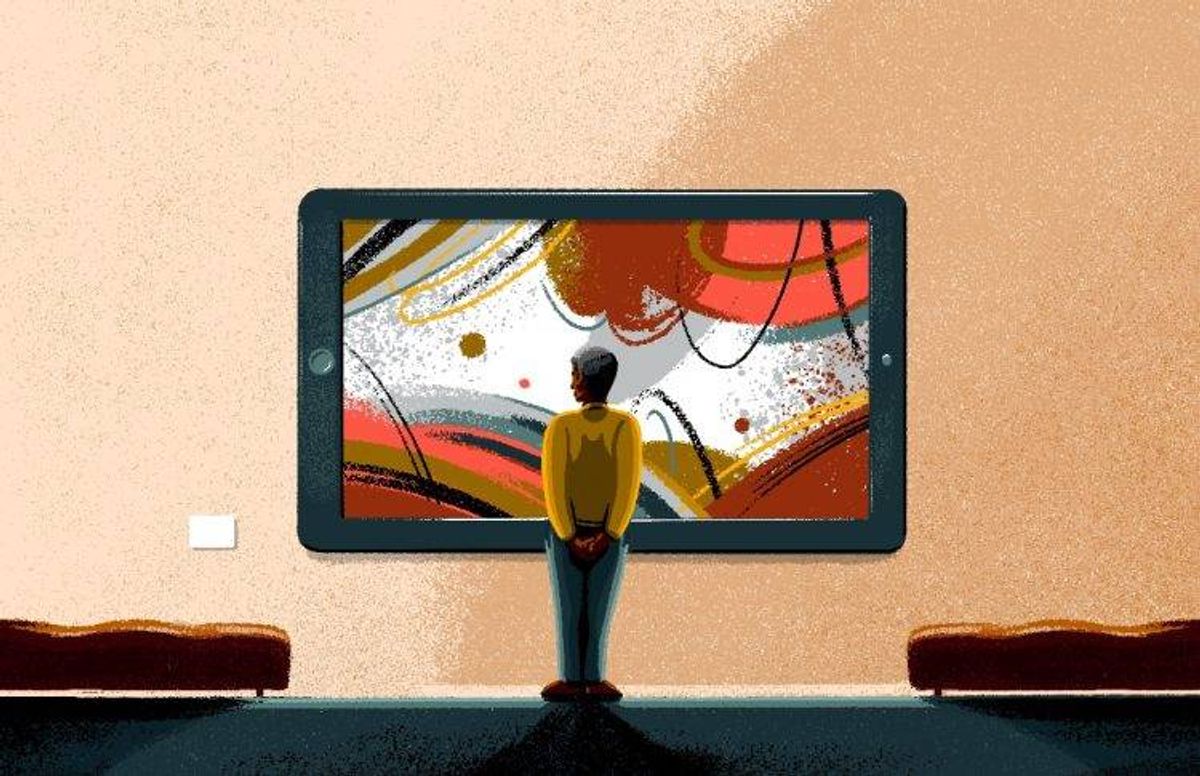
We’d like to give you a glimpse into Next Avenue’s “creative process” when it came to compiling this “Releasing Your Creativity” guide.
The original version, written in February 2020, was focused on what it’s like to participate in an art class and how that might take you out of your comfort zone in the best way possible; how to find community in a group of other art enthusiasts and how spending time in an art museum or attending an art appreciation event in a gallery can help broaden your horizons and forge connections with others.
The pandemic and quarantine changed that narrative. So, we had to “go back to the drawing board,” so to speak, and create a guide that would be inspirational about the power of bringing art into your life, but also practical about our world right now.
“You can’t use up creativity. The more you use it, the more you have.” – Maya Angelou, writer
If you want to create art, there is a way. If you want to find a community of other artists, who you might meet via Zoom, you can do that, too. And if there are galleries and classes in your area taking the appropriate safety precautions, those are available as well.
We hope you’ll be inspired to find the right way for you.


By: Neltada Charlemagne, DNP, APRN, PMHNP-BC, PHN, BHC

Older adults can safeguard themselves from the physical, mental and emotional toll of unexpected medical costs.

Optum Care Network – Monarch has teamed up with Landmark to deliver in-home medical care to members with multiple chronic conditions.